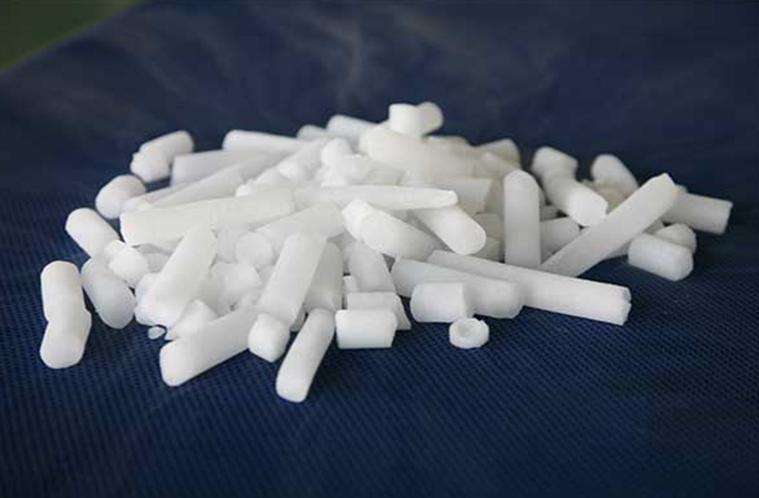

What are the ingredients for dry ice?
Time:2023-09-11 Category:【DSJet technology】Read:304
Everyone has heard of dry ice, but what exactly is it? Dry ice is actually the solid form of carbon dioxide found in the atmosphere. This article mainly introduces the principles and uses of dry ice to provide a deeper understanding of it. Dry ice is insoluble in water and has a higher density than regular ice. It appears as a white, solid ice-like substance. In daily life, dry ice is often used for artificial rain, stage performances, and more. Especially in stage performances, the “magical” effect that we see is created using dry ice. Carbon dioxide is invisible, so how is the “magical” effect on stage created? Firstly, when carbon dioxide transitions from a solid to a gas, it absorbs a large amount of heat, causing the surrounding air to rapidly cool down.

As the air temperature drops, the water vapor in the air undergoes a liquefaction reaction and releases heat, forming mist. When we eat popsicles in the summertime, we also see "white fog", which is the same principle of water vapor undergoing liquefaction. In other words, what we see is mist, not smoke. Dry ice is much colder than water, so the aforementioned process is equivalent to heating dry ice, causing it to absorb heat and sublime, lowering the temperature of the water and even causing it to freeze. Finally, we see the appearance of swirling mist. Dry ice is widely used today, especially in manufacturing and food processing industries. Before that, industrial-scale production of dry ice was successful in 1925 when Dry Ice Corporation was established in the United States.

Three years later, in 1928, Japan obtained the manufacturing and sales rights from Dry Ice Corporation and established Nippon Dry Ice Co., which is now known as Showa Carbonic Corporation. Dry ice is currently used primarily in the production of penicillin, the storage and transportation of fish, cream, ice cream, and other food products at low temperatures. In addition, there is dry ice cleaning technology, which is widely used in the foundry industry around the world to clean sand cores and molds. Dry ice cleaning mainly utilizes compressed air as the power source to eject dry ice particles onto the surface of the object being cleaned, utilizing the ultra-low temperature properties of dry ice to efficiently and environmentally clean.






